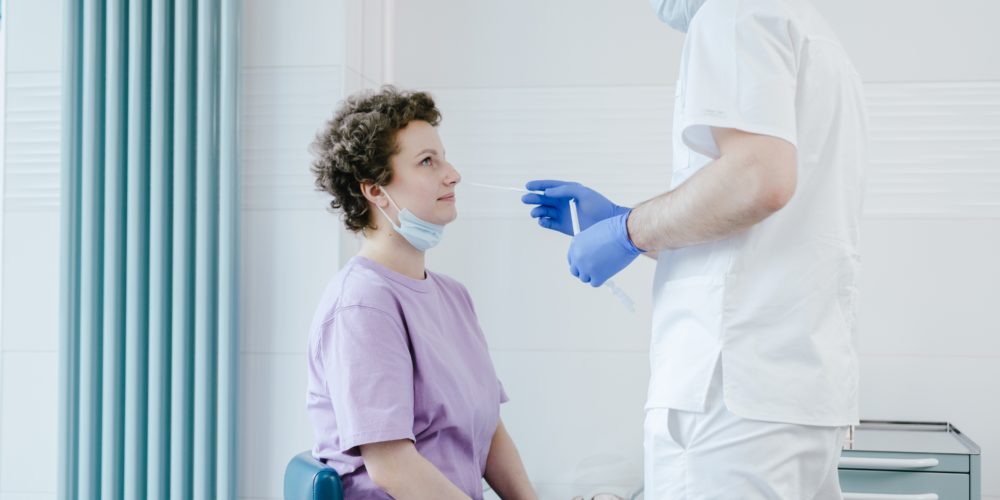
How to Prevent a False Positive COVID Test
COVID-19 testing is an important factor in preventing the spread of the SARS-CoV-2 virus. However, false test results can concern those who are trying to check for COVID-19. False negative results are worrisome because of a higher likelihood of spreading the virus without realizing it. False positives can be a concern when someone doesn’t want to unnecessarily isolate themselves or when they need a negative COVID-19 test to travel. Before looking at how to prevent a false positive COVID-19 test, it is important to note how accurate they are.
How Accurate Are COVID Tests?
There are three types of COVID-19 tests. The two viral ones are called the polymerase chain reaction (PCR) test and the antigen (or rapid response) test. The third type of test is the antibody test which only tests to determine whether you have had COVID-19 in the past. The PCR tests identify the presence of the SARS-CoV-2’s DNA from the samples collected. Samples are sent to a lab, and results usually take a few days to appear. The antigen tests identify the presence of certain proteins normally found on the surface of SARS-CoV-2. Results from these tests appear within minutes of taking them. The antigen tests are the ones you can buy to do at home.
How accurate is a COVID19 antigen test? How about a PCR test? Is one more reliable than the other? While the accuracy of COVID-19 tests varies based on manufacturer, results from both tests are highly reliable. However, a study published in The Journal of Infectious Diseases found that while both the PCR tests and antigen tests peaked in sensitivity when live virus was detected in nasal swab samples, PCR tests were more sensitive to the virus before the virus was present in the nasal swabs. This finding means that PCR tests better detect COVID-19 than antigen tests do. With that being said, the rate of false positive rapid COVID tests is about 0.05%. The rate in PCR tests is 0.04%.
What Causes a False Positive Rapid COVID Test?
User error is a major cause of false positive rapid COVID-19 tests. While mistakes can happen when administering both PCR and rapid COVID-19 tests, the bigger concern for error would be in rapid COVID tests since those ones are done at home. The most important key to remember when administering these tests is to follow the manufacturer’s guidelines exactly as they are written. Inaccurate results are more likely for those who don’t.
A false positive rapid COVID test can also come from contamination of the testing materials or the sample (mucus) getting tested. For example, some children have mixed the sample with fruit juice or soda so that they could get a false positive and stay home from school longer. Contamination can happen unintentionally as well, whether it be accidentally touching the swab or the sample before testing it. Washing your hands before administering a COVID-19 test can help lessen the chances of contamination, as does ensuring that the box you purchase with the test inside has not been opened or damaged in some way.
What Causes a False Positive PCR Test?
Contamination and miscommunication tend to be the more common reasons for a false positive PCR test. According to an article found in the Journal of Occupational and Environmental Medicine, contamination of PCR tests can happen if the worker, surfaces, or other samples that the test touches are infected. Dirty equipment can also cause contamination.
Miscommunication of results comes in the form of data entry errors, mixing up samples, and contacting the wrong person about results.
While it is important to note why these false positive PCR tests happen, it is also important to remember that the rate of false positive results is only 0.04%. PCR tests are still the more reliable of the two forms of testing.
How Long Will I Test Positive for COVID After Having It?
If you do test positive for COVID-19, you can continue testing positive for up to three months after symptoms first developed or initial positive test. Most people stop testing positive within a few weeks of onset of symptoms or positive COVID test and are no longer contagious after ten days. The CDC does not recommend a retest after positive COVID test within three months after symptoms developed or initial positive test. Do get retested, however, if you experience new COVID-19 symptoms. While the odds of a false positive COVID-19 test are low with the antigen test, you may double-check your results by getting a PCR test.
Find a Testing Location Today
It’s important to have the most accurate COVID-19 test results possible. BioCollections Worldwide can help. They offer PCR tests in Miami, Tampa, Orlando, Las Angeles, Las Vegas, and Puerto Rico, as well as at affiliates and subsidiaries in Central America, South America, Europe, Africa, and Asia. With their average wait time for test results at about 20 hours, it is quick and easy to find out whether you have COVID-19. For hours and locations, visit their website here.
